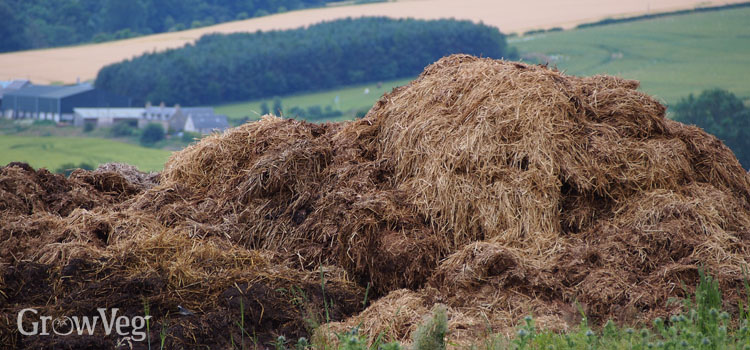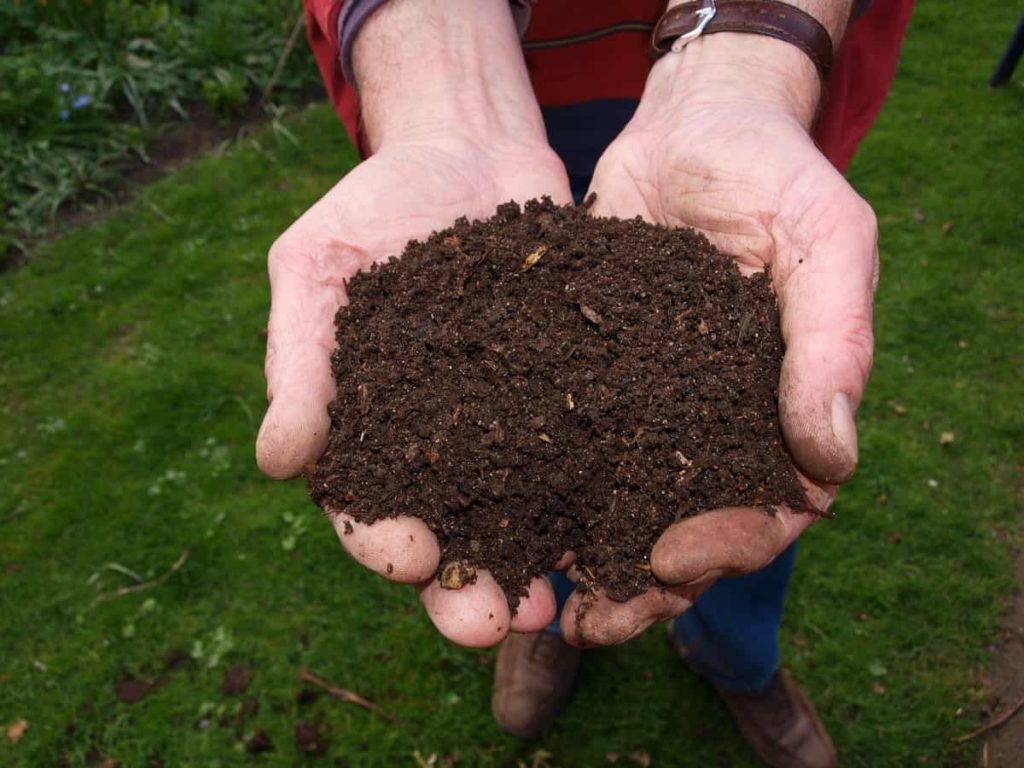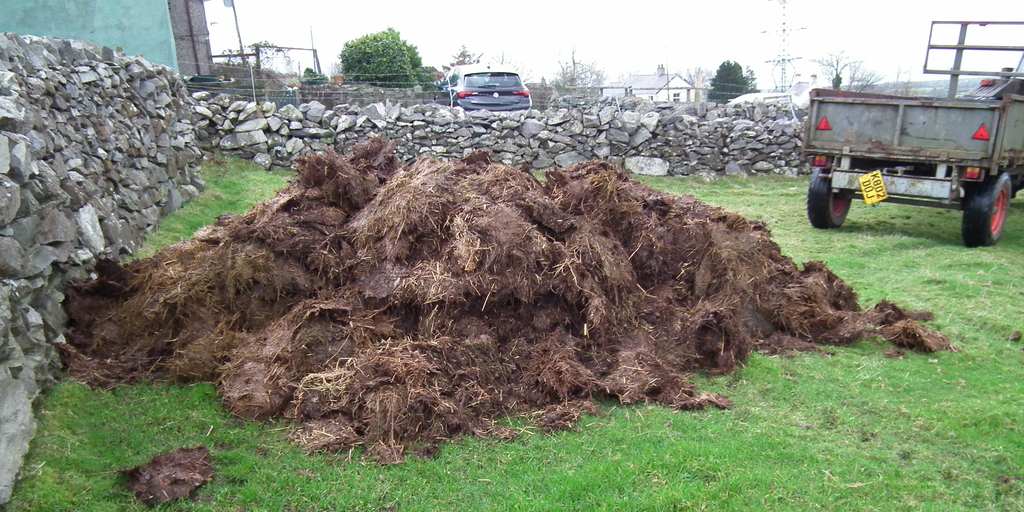Well Rotted Manure: The Secret To Healthy Soil
Well Rotted Manure: The Secret to Healthy Soil
Manure is a natural fertilizer that has been used by gardeners for centuries. It is rich in nutrients that plants need to grow healthy and strong, and it also helps to improve the soil's structure. However, not all manure is created equal. Fresh manure can contain harmful bacteria and parasites, and it can also be high in salts. Well-rotted manure, on the other hand, is safe to use and provides a wealth of benefits for your garden.
What is well-rotted manure?
Well-rotted manure is manure that has been composted for a period of time. This process breaks down the organic matter in the manure and kills any harmful bacteria or parasites. Well-rotted manure is dark brown or black in color, and it has a crumbly texture. It should have no odor, or a very mild odor.
Why use well-rotted manure?
There are many benefits to using well-rotted manure in your garden. Here are just a few:
- Increases soil fertility: Well-rotted manure is a rich source of nutrients, including nitrogen, phosphorus, potassium, and calcium. These nutrients are essential for plant growth.
- Improves soil structure: Well-rotted manure helps to loosen compacted soil and improve drainage. It also helps to retain moisture, which is important for plant growth.
- Attracts beneficial bacteria and fungi: Well-rotted manure provides a habitat for beneficial bacteria and fungi. These organisms help to break down organic matter and improve soil fertility.
- Suppresses weeds: Well-rotted manure can help to suppress weeds by increasing the nitrogen content of the soil. This makes it more difficult for weeds to germinate.
- Attracts earthworms: Earthworms are beneficial creatures that help to aerate the soil and improve drainage. They also help to break down organic matter and release nutrients.
How to use well-rotted manure
Well-rotted manure can be used in a variety of ways in your garden. Here are a few tips:
- Add it to the soil: Well-rotted manure can be added to the soil at any time of year. It is best to work it into the soil at least 6 inches deep.
- Use it as a mulch: Well-rotted manure can be used as a mulch around plants. This will help to keep the soil moist and suppress weeds.
- Make a compost tea: Well-rotted manure can be used to make a compost tea. This is a liquid fertilizer that can be applied to plants.
- Feed your plants with it: Well-rotted manure can be fed to plants directly. This is a good way to give your plants a boost of nutrients.
When not to use well-rotted manure
Although well-rotted manure is generally safe to use, there are a few times when you should avoid using it. Here are a few examples:
- Do not use it fresh: Fresh manure can contain harmful bacteria and parasites. It should be composted for at least 6 months before using it.
- Do not use it on plants that are sensitive to high salt levels: Some plants, such as tomatoes and eggplants, are sensitive to high salt levels. If you are unsure whether a plant is sensitive to salt, it is best to err on the side of caution and avoid using well-rotted manure on it.
- Do not use it on plants that are growing in sandy soil: Sandy soil does not hold moisture well. If you are using well-rotted manure on sandy soil, it is important to water your plants regularly.
Conclusion
Well-rotted manure is a valuable asset for any gardener. It is a natural fertilizer that can help to improve the health of your soil and your plants. When used properly, well-rotted manure can help you to grow healthy, beautiful plants.
Well rotted manure is a great way to improve the fertility of your soil and help your plants grow. It is a dark, crumbly material that is free of weed seeds and pathogens. Well rotted manure can be used as a soil amendment, topdressing, or mulch. It is especially beneficial for roses, vegetables, and other heavy-feeding plants.
To learn more about well rotted manure, visit Home Gardening. Home Gardening is a leading supplier of well rotted manure and other organic gardening products. They offer a wide variety of manures, including horse manure, cow manure, and chicken manure. They also offer a variety of other organic gardening products, such as compost, worm castings, and peat moss.
FAQ of well rotted manure
- What is well rotted manure?
Well rotted manure is manure that has been composted for a period of time, typically several months or even years. During this time, the manure undergoes a process of decomposition, during which harmful bacteria and parasites are killed off. Well rotted manure is dark brown or black in color, crumbly in texture, and has a pleasant, earthy smell.
- What are the benefits of using well rotted manure?
Well rotted manure is a natural fertilizer that is rich in nutrients, including nitrogen, phosphorus, and potassium. It can help to improve the soil structure, making it more loose and airy, which allows plants to root more easily and deeply. Well rotted manure can also help to retain moisture in the soil, which is especially beneficial in dry climates.
- How do I know if manure is well rotted?
There are a few ways to tell if manure is well rotted. One way is to look at the color. Well rotted manure should be dark brown or black. Another way to tell is to feel the texture. Well rotted manure should be crumbly and not sticky. Finally, you can smell the manure. Well rotted manure should have a pleasant, earthy smell.
- How do I use well rotted manure?
Well rotted manure can be used in a variety of ways. It can be added to the soil as a fertilizer, or it can be used to make compost. Well rotted manure can also be used to mulch plants, which helps to suppress weeds and retain moisture.
- What are some safety precautions to take when using well rotted manure?
Even though well rotted manure is generally safe to use, there are a few safety precautions that you should take. First, you should always wear gloves and eye protection when handling manure. Second, you should avoid getting manure on your skin or in your eyes. If you do get manure on your skin, wash it off immediately with soap and water. If you get manure in your eyes, flush them with water for at least 15 minutes.
- What are some alternatives to well rotted manure?
If you do not have access to well rotted manure, there are a few alternatives that you can use. One alternative is to use commercial fertilizers. Commercial fertilizers are available in a variety of forms, including powders, liquids, and granules. Another alternative is to use compost. Compost is made from organic materials, such as vegetable scraps, yard waste, and food scraps. Compost can be made at home or purchased from a garden center.
Image of well rotted manure
10 different images of well rotted manure that are free to use:
- Horse manure is a dark brown, crumbly material that has a strong, earthy smell. It is a good source of nitrogen, phosphorus, and potassium, and it is often used as a fertilizer for gardens and lawns.

- Cow manure is similar in appearance to horse manure, but it is typically lighter in color and has a less offensive odor. It is also a good source of nutrients, and it is often used as a fertilizer for crops.
- Pig manure is dark brown and has a strong, ammonia-like odor. It is a good source of nitrogen, phosphorus, and potassium, but it can also contain harmful bacteria. Pig manure should be composted for at least 6 months before using it on plants.

- Chicken manure is a light brown, crumbly material that has a strong, ammonia-like odor. It is a good source of nitrogen, phosphorus, and potassium, but it can also contain harmful bacteria. Chicken manure should be composted for at least 3 months before using it on plants.

- Goat manure is similar in appearance to sheep manure, but it is typically darker in color and has a stronger odor. It is a good source of nitrogen, phosphorus, and potassium, and it is often used as a fertilizer for gardens and lawns.

- Sheep manure is a dark brown, crumbly material that has a strong, earthy smell. It is a good source of nitrogen, phosphorus, and potassium, and it is often used as a fertilizer for gardens and lawns.

- Rabbit manure is a light brown, crumbly material that has a mild odor. It is a good source of nitrogen, phosphorus, and potassium, and it is often used as a fertilizer for gardens and lawns.

- Guinea pig manure is a dark brown, crumbly material that has a mild odor. It is a good source of nitrogen, phosphorus, and potassium, and it is often used as a fertilizer for gardens and lawns.
- Hamster manure is a light brown, crumbly material that has a mild odor. It is a good source of nitrogen, phosphorus, and potassium, and it is often used as a fertilizer for gardens and lawns.

- Rat manure is a dark brown, crumbly material that has a mild odor. It is a good source of nitrogen, phosphorus, and potassium, and it is often used as a fertilizer for gardens and lawns.


Post a Comment for "Well Rotted Manure: The Secret To Healthy Soil"